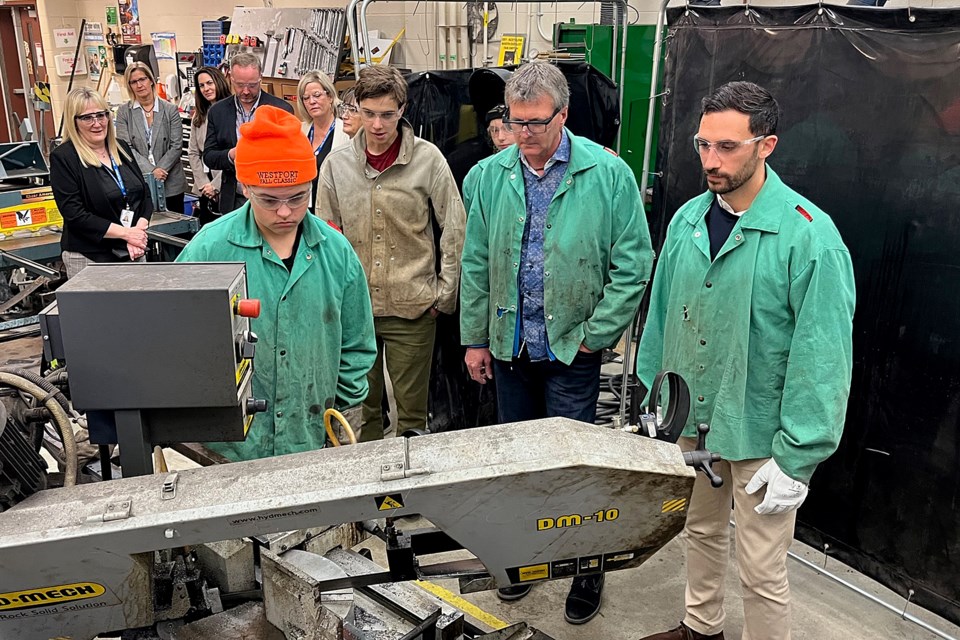THUNDER BAY – Education Minister Stephen Lecce says meeting the infrastructure needs of students and schools in Ontario’s North is his top priority for the region.
Lecce, who visited with students at a manufacturing lab at Superior Collegiate and Vocational Institute on Wednesday in Thunder Bay, said he also met with student trustees in the city a day earlier to get their perspective on their education needs.
“The message I keep hearing in the North is the need for capital investment. Schools here need to be renewed. They need to have new schools based on growth and families in the North want their fair share,” said Lecce, who also visited with students from ÉSC de La Vérendrye while in Thunder Bay.
Lecce pointed to the recent announcement of the forthcoming French public school that is scheduled to open in the city next September as an example of the government listening to the community and responding to its needs, as opposed to dictating from Queen’s Park.
The education minister said he’s also aware of not only the unique challenges facing students and schools in the North, but the opportunities that come with it.
“I think the reason why we connect every school to the internet is because we recognize we have to have some equitable access to learning, no matter where you are, no matter where you live,” Lecce said.
“The third component is the recognition of the great diversity of learning and harnessing Indigenous education within our schools. I really see it done so well in the North the integration, the partnership, working with a variety of First Nation communities. I’m learning a lot from this community.”
Sherri-Lynne Pharand, director of education at Lakehead Public Schools, said Thunder Bay has a different reality than downtown Toronto, adding she spoke with Lecce about how the pandemic raised the importance of access to broadband internet throughout Ontario.
“It is a capital investment for communities, not just for school boards, because equity of access during the pandemic for students to learn in a virtual manner was very challenging and very difficult,” Pharand said. “Certainly as we look at capital annually, the ministry does invite submissions from school boards across the province, where we’re able to bring forward everything.”
She pointed to the manufacturing classroom at Superior Collegiate as an example of schooling that goes beyond books and chalkboards.
“It’s a big investment, as you could see all the equipment and the machinery in there. So we always have to make sure our buildings have the best possible learning environment and equipment for our students to ensure they have the same opportunities here in Northern Ontario to pursue their dreams as they would anywhere across the province.”
Asked about ongoing negotiations with education workers who have voted in favour of a strike, Lecce said he hoped cooler heads would prevail on both sides.
Negotiations are expected to resume on Monday. Workers are asking for an 11.25 per cent raise, while the province has countered with two per cent for anyone making $39,000 or less and 1.25 per cent for those making more than $39,000.
